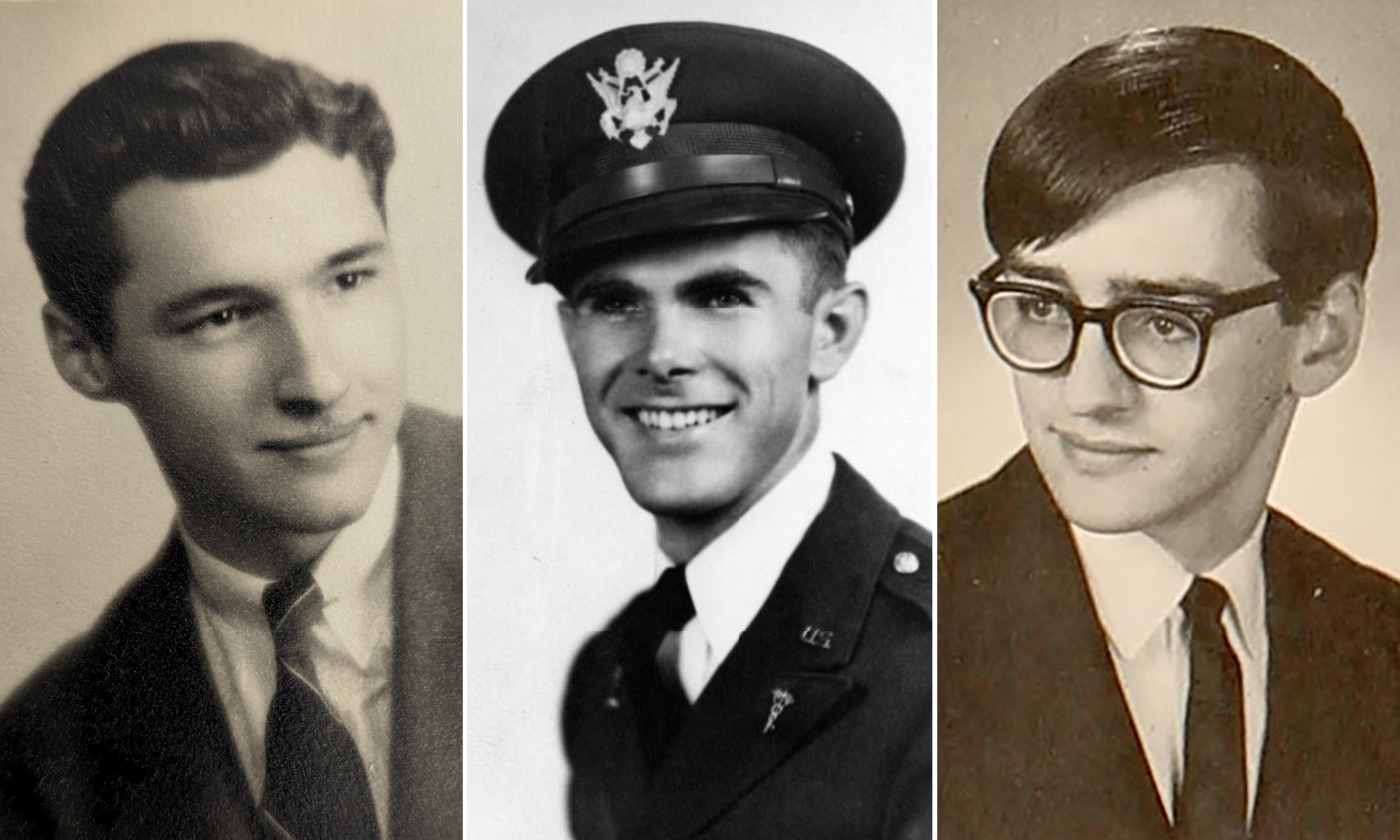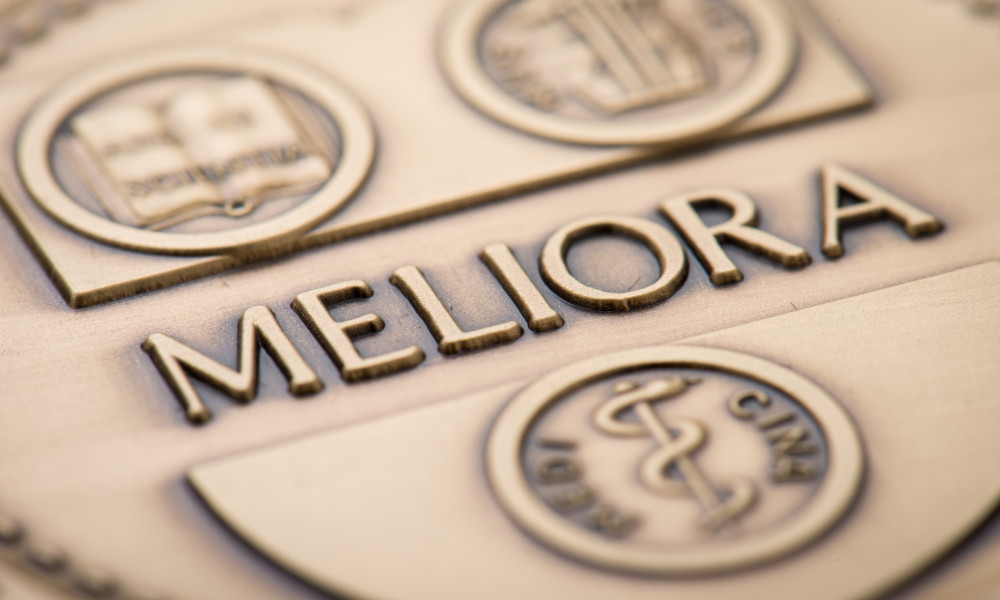Rashad Moore ’17 asks some African-American campus leaders: What does Frederick Douglass mean to us today?
With Black History Month upon us, we reflect on the African-American men and women who have helped make this country what it is today—from Barack Obama, to Rosa Parks, W.E.B Dubois, Fredrick Douglass, and many others.
Each of these individuals is peerless when it comes to their accomplishments; however, they would be remiss if they were to say they could have accomplished what they did without the great black men and women who came before them. The adage “we stand on the shoulders of giants” is true for every member of the black community.
That’s especially true here on the University of Rochester campus, where Douglass’s legacy is a living presence.
The University is home to the Frederick Douglass Institute of African and African-American Studies—a 30-plus-year-old intellectual hub for teaching, research, and public events. The Frederick Douglass Commons, named in 1967 and renovated in 2016, is home to a dining center as well as multiple University organizations promoting intercultural knowledge and diversity. And the University’s Rare Books and Special Collections is home to the Frederick Douglass Project, and online and physical collection of his writings from his time in Rochester.
Douglass spent 25 years in Rochester. Over his lifetime, he was an abolitionist leader, pastor, writer, bank president, vice presidential nominee, and a United States Marshal for the District of Columbia. But before he played any of those prominent roles, he was nothing more than the property of Thomas Auld. He was a slave.
Nothing epitomizes Douglass more than hard work, determination, and innovation. As a slave, he started learning how to read and write by giving bread to poor white boys in exchange for reading lessons. It was common knowledge among slave owners that education and slavery were incompatible, because education would allow slaves to not only dream about freedom, but to seek it.
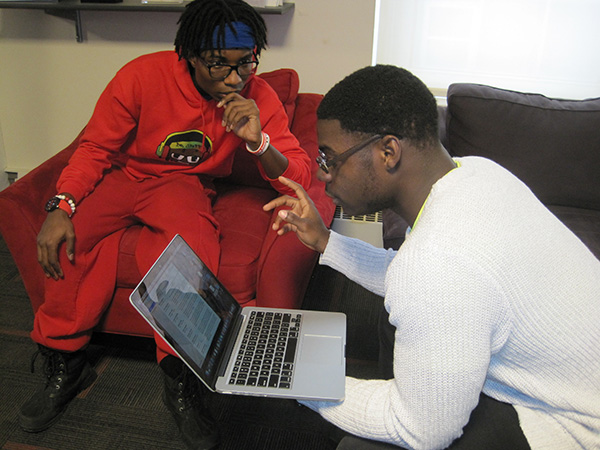
Among the students who draw inspiration from Douglass are the residents of the Douglass Leadership House (DLH). DLH was founded in 2012 by a group of students “to create an engaged intellectual community where students of diverse backgrounds can come together in a supportive environment to nurture their leadership skills.”
DLH vice president Aleem Griffiths ’18, a digital studies major from Bronx, New York, says, “Two of Fredrick Douglass’s virtues that inspire me as a student are his hard work and determination. When I think of Douglass and my ancestors, I think about how they fought harder battles than I have, which pushes me to work harder. These people fought and died so I can be here.”
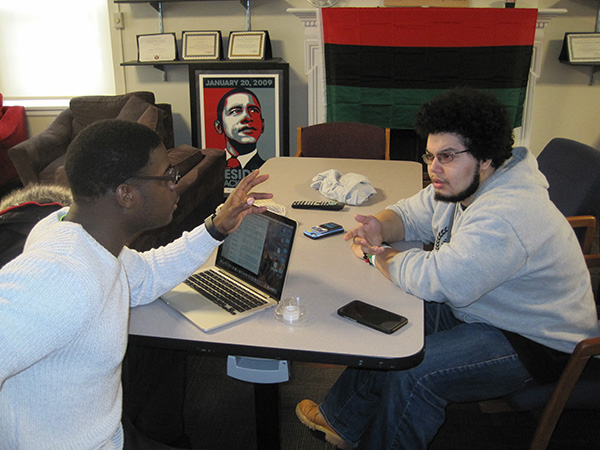
Other students say Douglass inspires them to serve their communities. DLH resident Edwin Aguila ’17, who designed his own major—advocacy through art forms in America—is an example. “Last year we went to the Boys and Girls Club [of Rochester] and put on a program we created on the theme, what is my identity and where do I come from,” says the senior from Brooklyn, New York.
Amber Hudson ’18, and English major from Washington, D.C., cites as inspiration Douglass’s courage, resilience, and strength—qualities that she feels were necessary not only to Douglass’s success, but to the success of all African Americans, herself included. She’s focused on “giving back to the community in a way that betters the community” through her leadership roles in multiple organizations. She’s vice president of the Alpha Kappa Alpha sorority’s Omicron Beta chapter, and educational and political chair of the Black Students’ Union.
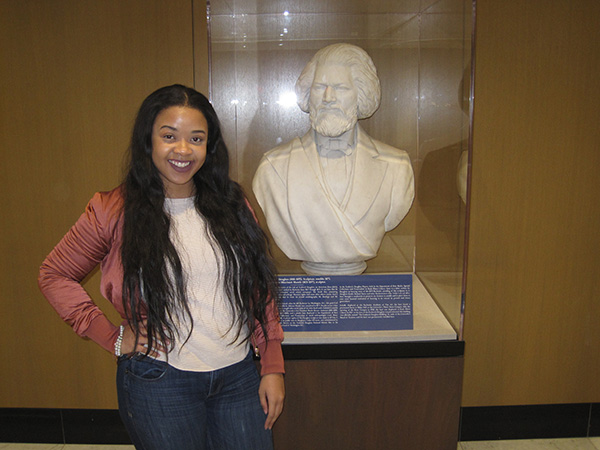
Stephaun Ward ’18, a mechanical engineering major from Brooklyn and a member of the Alpha Phi Alpha fraternity, uses his platform there to help underprivileged students, regardless of race. Ward assists local youths as part of the fraternity’s “Go-to-High-School, Go-to-College” program.
Today, Douglass is not a monument, but a mind-set. Says Hudson, “By teaching about his legacy, by connecting it to everything we do today, and by continuing to fight for what he fought so hard for—that is how we honor our ancestors. We move forward, we get better, we accomplish all of things they wanted us to accomplish.”
Moore is an English major from Brooklyn, New York.
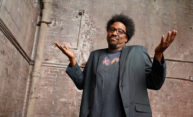
Events celebrating Black History Month
W. Kamau Bell, sociopolitical comedian and host of the Emmy-nominated CNN show United Shades of America, highlights a month of lectures, films, performances, and exhibits.


